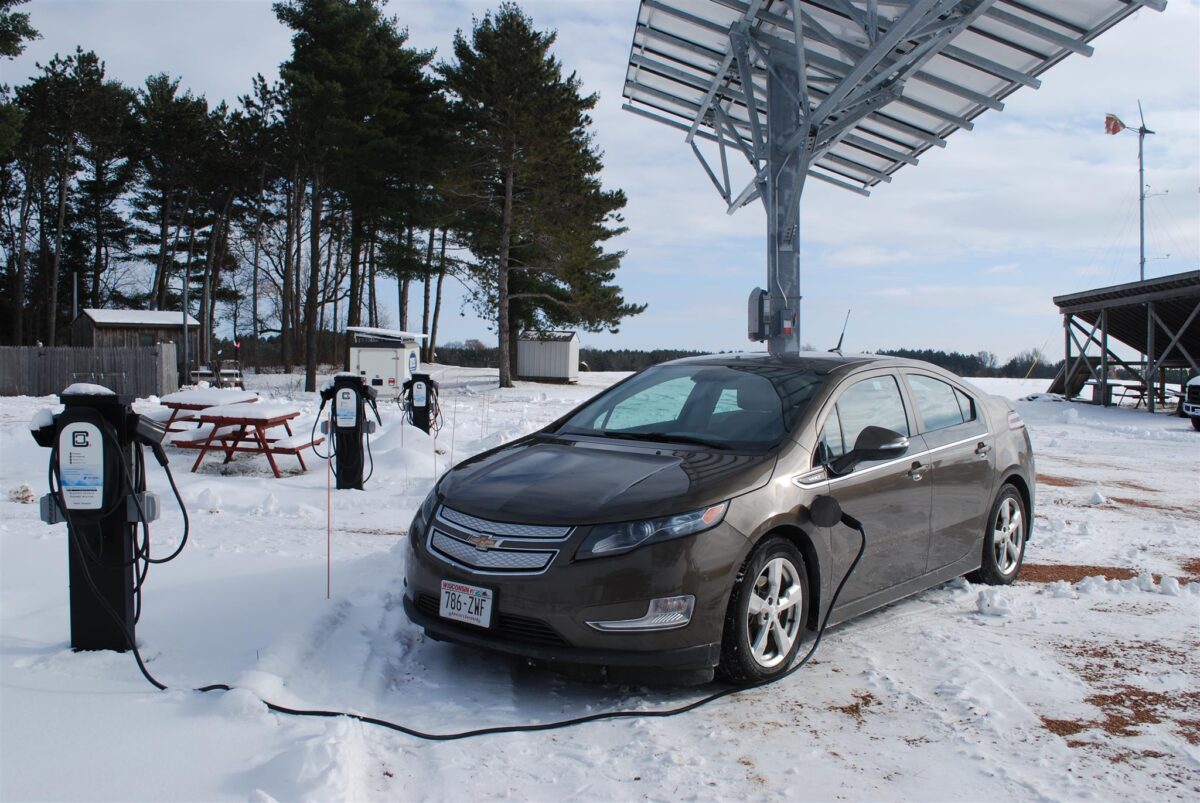For drivers weighing the option of buying an electric vehicle (EV), range anxiety and battery fires have been proverbial hot topics, so to speak. Over time, consumers have also noticed that lithium-ion batteries have historically underperformed or shown to be less effective operating in freezing environments at or below zero degrees.
Current lithium-ion batteries use a liquid electrolyte. As particles and ions transfer within the liquid and as the liquid begins to freeze at sub-zero temperatures, an EV battery’s charging ability can be severely limited in cold temperatures. Various consumer studies by Kelly Blue Book and Consumer Reports found that EV driving range can be reduced by up to 25% in sub-freezing temperature conditions driving at normal highway speed.
According to a study by the U.S. Department of Energy’s (DOE) Argonne and Lawrence Berkeley National laboratories, researchers have developed a fluorine-containing electrolyte that performs well for EVs driving in sub-zero temperatures.
In conventional lithium-ion batteries, the electrolyte is a mixture of a salt (lithium hexafluorophosphate) and carbonate solvent such as ethylene carbonate. These solvents dissolve the salt to form a liquid. When freezing, the battery solvents’ cluster loses the ability to transport ions out of the cathode and pass through the electrolyte onto the anode.
Creating an antifreeze component to EV batteries, the DOE/LBNL research team investigated several fluorine-containing solvents. The team found a composition that had the lowest energy barrier for releasing lithium ions from the salt clusters at sub-zero temperature.
The team’s fluorinated electrolyte retained stable energy storage capacity for 400 charge-discharge cycles at negative 4 degrees F. Even at sub-zero temperature, the capacity was equivalent to that of a cell with a conventional carbonate-based electrolyte at room temperature, the research team found.
“Our team not only found an antifreeze electrolyte whose charging performance does not decline at minus 4 degrees Fahrenheit, but we also discovered, at the atomic level, what makes it so effective,” said Zhengcheng “John” Zhang, a senior chemist and group leader in Argonne’s Chemical Sciences and Engineering division.
This low-temperature electrolyte shows promise of working for batteries in electric vehicles, as well as in energy storage for electric grids and consumer electronics like computers and phones.
“Our research thus demonstrated how to tailor the atomic structure of electrolyte solvents to design new electrolytes for sub-zero temperatures,” said John Zhang, Argonne group leader and senior chemist of energy storage.
The antifreeze electrolyte has a bonus property. It is safer than carbonate-based electrolytes in current use, since the antifreeze battery technology will not catch fire.
Zhang said the DOE/LBNL research group is seeking to patent the antifreeze electrolyte technology now and secure an industrial partner to adapt it with one of their designs for lithium-ion battery production.
The study was initially published in Advanced Energy Materials. Additional authors include Argonne’s Dong-Joo Yoo, Qian Liu and Minkyu Kim. LBNL contributors include Orion Cohen and Kristin Persson.
The research study was funded by the DOE Office of Energy Efficiency and Renewable Energy, Vehicle Technologies Office.
This content is protected by copyright and may not be reused. If you want to cooperate with us and would like to reuse some of our content, please contact: editors@pv-magazine.com.









By submitting this form you agree to pv magazine using your data for the purposes of publishing your comment.
Your personal data will only be disclosed or otherwise transmitted to third parties for the purposes of spam filtering or if this is necessary for technical maintenance of the website. Any other transfer to third parties will not take place unless this is justified on the basis of applicable data protection regulations or if pv magazine is legally obliged to do so.
You may revoke this consent at any time with effect for the future, in which case your personal data will be deleted immediately. Otherwise, your data will be deleted if pv magazine has processed your request or the purpose of data storage is fulfilled.
Further information on data privacy can be found in our Data Protection Policy.